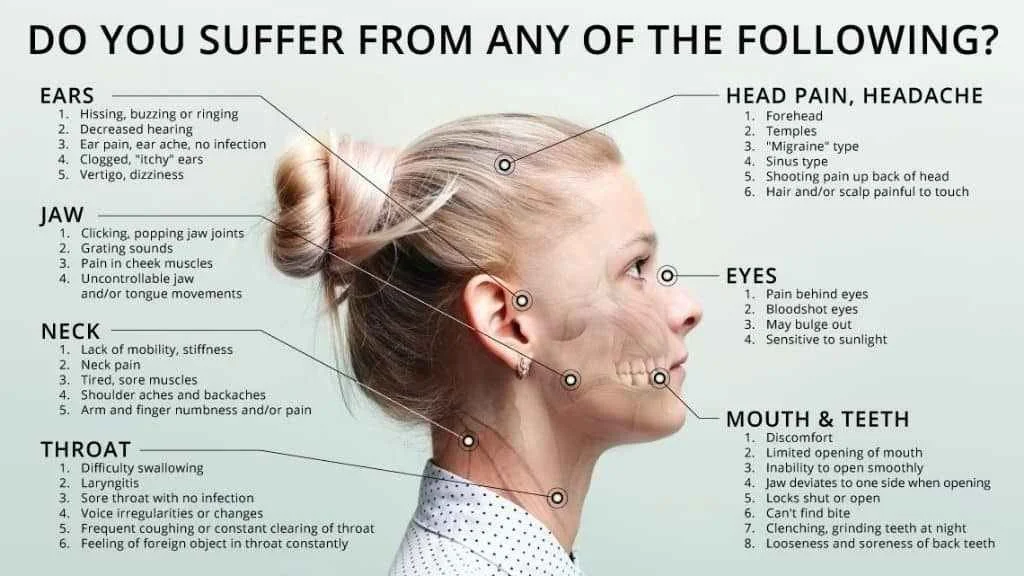Have you been struggling with unexplainable neck pain, frequent migraines, or restless sleep? Many people search for answers in the wrong places—when the real culprit might be TMJ disorder (temporomandibular joint disorder).
The temporomandibular joint (TMJ) connects your jawbone to your skull, and when it’s misaligned or stressed, it can cause a ripple effect of symptoms far beyond just jaw pain. Let’s explore how TMJ problems can affect your body and why they often go unnoticed.
How TMJ Problems Cause Neck Pain
Your jaw muscles are connected to the muscles in your neck and shoulders. When the TMJ is strained due to teeth grinding, jaw clenching, or misalignment, it can create tension that radiates into the neck. This leads to chronic stiffness, soreness, and unexplained neck pain that traditional treatments may not relieve.
The Connection Between TMJ and Migraines
TMJ dysfunction can trigger migraines and tension headaches. Misaligned jaw joints put pressure on the surrounding nerves and muscles, creating pain that spreads to the head. If your migraines haven’t improved with typical treatments, a TMJ evaluation may uncover the hidden cause.
TMJ and Restless Sleep
People with TMJ disorders often experience teeth grinding (bruxism), jaw clenching, or even airway obstruction during sleep. These issues disrupt rest, leading to restless nights, fatigue, and poor sleep quality. Addressing TMJ problems can significantly improve sleep health and reduce nighttime discomfort.
Signs You Might Have a TMJ Disorder
Jaw clicking, popping, or locking
Difficulty opening or closing the mouth
Ear pain or ringing in the ears
Jaw soreness in the morning
Frequent headaches or migraines
Shoulder and neck pain
If you experience multiple symptoms, your unexplained pain may be linked to TMJ disorder.
Finding Relief From TMJ Problems
The good news is that TMJ disorder can be treated. Depending on your condition, treatment may include:
Custom TMJ mouth guards or splints
Physical therapy and jaw exercises
Lifestyle changes like stress management
Specialized dental care for bite alignment
With the right diagnosis and treatment plan, you can reduce neck pain, migraines, and sleep disturbances caused by TMJ issues.
Final Thoughts
Don’t ignore unexplainable neck pain, migraines, or restless sleep—they may be signs of a TMJ problem. By addressing the root cause, you can restore comfort, improve sleep, and finally find lasting relief.
If you suspect you may have TMJ disorder, consult a TMJ specialist or dentist for a proper evaluation.
